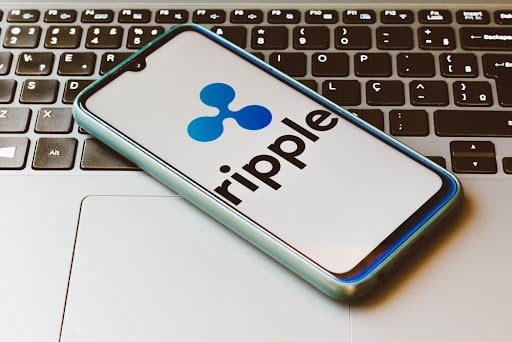- Digital loyalty programs foster long-term customer relationships and offer valuable insights on spending habits.
- Tokenization of assets, including NFTs, is becoming a popular method for brands to revamp their loyalty programs and integrate blockchain technology.
A surge in interest from major brands is driving the exploration of blockchain’s potential in diverse sectors. As noted in a post-tweet from Ripple. The recent report from Ripple in conjunction with @PwC sheds light on how blockchain and tokenization can reinvent and enhance brand loyalty and rewards schemes.
The average U.S. consumer participates in 16 loyalty programs but is active in less than 50% of those programs they've signed up for.
In our report with @PwC, learn how blockchain and tokenization can help evolve brand loyalty and rewards programs. ⭐️https://t.co/WVB3Zy37eS
— Ripple (@Ripple) October 12, 2023
Redefining Customer Engagement Through Personalization
Digital loyalty schemes, anchored on personalization, pave the way for enduring customer ties, community building, and the transformation of consumers into brand proponents. A PwC survey involving over 400 executives revealed:
- 70% found that digitalizing their loyalty programs bolstered customer loyalty.
- 60% elevated their loyalty program budgets due to its favorable performance.
- An overwhelming 90% believed that their loyalty schemes should provide augmented rewards or benefits.
Nevertheless, the present market indicates a declining interest in generic, solely transaction-based programs. Genuine brand loyalty is achieved where economic value aligns with community engagement, necessitating brands to explore unique avenues while fostering touchpoints and cultivating a feeling of exclusive membership.
Tapping into the Crypto-Driven Loyalty Revolution
Despite widespread adoption, traditional company loyalty programs often grapple with internal constraints and usability challenges. Rewards are often difficult for consumers to monitor and access, and seldom is value shared across various ecosystems or brands.
In response, several brands are leveraging the power of cryptocurrency. For instance, renowned fast-food chains are rolling out rewards schemes via tokenized assets and NFTs, while certain banks reward their steadfast customers with crypto incentives. These strategies are not just fringe crypto activities; they are methods to nurture tokenization endeavors linked to broader corporate applications, such as mobile interactions and payments.
Simplifying Sign-Ups with Decentralized Identities
Historically, a significant hurdle for conventional loyalty programs has been the cumbersome sign-up process. Tedious and repetitive sequences lead to premature exits and raise alarms regarding identity theft due to personal data usage.
The solution lies in adopting decentralized identity (DiD), enabling users to construct and manage their digital ID via an on-chain wallet, devoid of reliance on a sole provider. This system utilizes zero-knowledge proofs, a cryptographic method to validate identities without exposing sensitive details. Furthermore, companies can mitigate liabilities tied to safeguarding client data by supporting the creation of decentralized identities, such as minting them as tokens or NFTs. This not only streamlines user onboarding but also ushers in a novel transactional ecosystem, where loyalty points might be tokenized as stablecoins, ensuring transparency and security.
Embarking on the Journey to Blockchain Loyalty Programs
Concluding their analysis, PwC advocates for brands to employ a data-centric personalization strategy to effectively engage and cultivate deeper connections with their clientele. Depending on their resources, companies can either develop an in-house framework for a blockchain loyalty program or collaborate with fintech entities and providers for a customized solution. Alternatively, existing platforms and partnerships within the industry can be leveraged for smoother integration.
Recommended for you:
- Buy Ripple (XRP) Guide
- Ripple XRP Wallet Tutorial
- Check 24-hour XRP Price
- More Ripple (XRP) News
- What is Ripple (XRP)?
Subscribe to our daily newsletter!
No spam, no lies, only insights. You can unsubscribe at any time.




